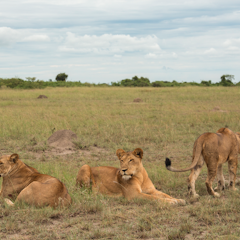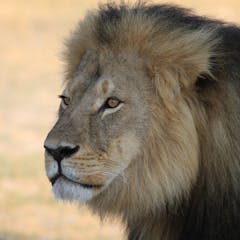
Articles on Trophy hunting
Displaying 1 - 20 of 39 articles

The strategy aims to conserve biodiversity while also contributing to the creation of jobs and economic growth.

Lion protection fees paid by tourists could pave the way for a responsible transition away from trophy hunting without affecting the communities that rely on hunting revenue.

To what extent should the costs of protecting globally valued rhinos be carried by their local custodians?

Bans on importing hunting trophies risk harming, not helping, endangered species.

An Africa-based conservation expert explains why trophy hunting has not delivered for wildlife in most parts of Africa, and that local communities benefit next to nothing from its continued practice

Legal hunting helps rhino conservation for biological and socio-economic reasons.

To many of us trophy hunting is repellent. But here’s a look at why killing wild animals might be pleasurable to some.

Debates centred on the role of recreational hunting in supporting nature conservation and local people’s livelihoods are among the most polarising in conservation today.

How communities in Botswana are counting the costs of a trophy hunting ban.

A new study evaluates what South African landowners who run trophy hunting operations would do in the event of a hunting ban.

Private game farming isn’t being managed in a socially or environmentally sustainable way.

A green criminologist weighs up the evidence.

In light of Botswana’s decision to allow trophy hunting again, new evidence suggests elephant poaching has been on the rise.

Lifting the trophy hunting moratorium in Botswana is more about politics and less about elephant conservation.

Trophy hunting is not the solution to Africa’s wildlife conservation challenges. There are other ways.

Few people could argue that hunting wildlife for trophies is moral, but conservationists have bigger fish to fry to reverse biodiversity loss

The economic, social and conservation reasons why hunting remains relevant in southern Africa.

Wildlife hunts are supposed to be grounded in sound science, but new research casts doubt on this assumption.

Computer models have produced some very worrying results.

The Trump administration is considering requests from hunters to import wildlife trophies (body parts) on a case-by-case basis. Does this approach promote conservation or threaten endangered species?
